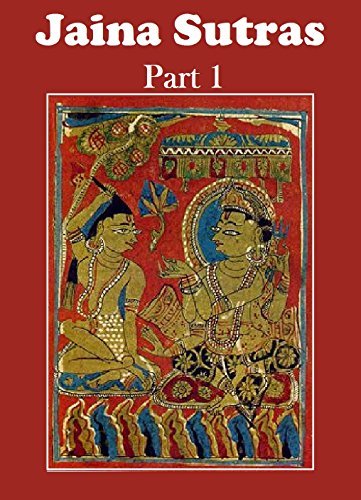Acaranga-sutra
by Hermann Jacobi | 1884 | 71,211 words | ISBN-10: 8120801237 | ISBN-13: 9788120801233
The English translation of the Acaranga Sutra, which represents the first the 12 Angas in Shevatambara Jainism. It is traditionally dated to the 5th-century BCE and consists of two parts containing lectures based on the teachings of Mahavira. Topics include: lifestyle of an ascetic: conduct, behavior, collecting alms, clothes, mode of walking and ...
Lecture 8, Lesson 3
Always well guarded, he bore the pains (caused by) grass, cold, fire, flies, and gnats; manifold pains. (1)
He travelled in the pathless country of the Lāḍhas, in Vajjabhūmi and Subbhabhūmi[1]; he used there miserable beds and miserable seats. (2)
In Lāḍha (happened) to him many dangers. Many natives attacked him. Even in the faithful part of the rough country[2] the dogs bit him, ran at him. (3)
Few people kept off the attacking, biting dogs. Striking the monk, they cried ‘Chucchū,’ and made the dogs bite him. (4)
Such were the inhabitants. Many other mendicants, eating rough food in Vajjabhūmi, and carrying about a strong pole or a stalk (to keep off the dogs), lived there. (5)
Even thus armed they were bitten by the dogs, torn by the dogs. It is difficult to travel in Lāḍha. (6) Ceasing to use the stick (i.e. cruelty) against living beings, abandoning the care of the body, the houseless (Mahāvīra), the Venerable One, endures the thorns of the villages (i.e. the abusive language of the peasants), (being) perfectly enlightened. (7)
As an elephant at the head of the battle, so was Mahāvīra there victorious. Sometimes he did not reach a village there in Lāḍha. (8)
When he who is free from desires approached the village, the inhabitants met him on the outside, and attacked him, saying, ‘Get away from here.’ (9)
He was struck with a stick, the fist, a lance, hit with a fruit, a clod, a potsherd. Beating him again and again, many cried. (10)
When he once (sat) without moving his body, they cut his flesh[3], tore his hair under pains, or covered him with dust. (11)
Throwing him up, they let him fall, or disturbed him in his religious postures; abandoning the care of his body, the Venerable One humbled himself and bore pain, free from desire. (1 2)
As a hero at the head of the battle is surrounded on all sides[4], so was there Mahāvīra. Bearing all hardships, the Venerable One, undisturbed, proceeded (on the road to Nirvāṇa). (13)
This is the rule which has often been followed, &c.
Footnotes and references:
[1]:
Vajrabhūmi and Śubhrabhūmi (or Śvabhrabhūmi) are, according to the commentaries, the two divisions of Lāḍha. I think that Lāḍha may be identical with the classical Rāḍhā or western Bengal and the Lāla of the Buddhists, the native country of Vijaya, the legendary conqueror of Ceylon. Subbhabhūmi is probably the country of the Suhmas, who are also identified with the Rāḍhas.
[2]:
The commentator seems to understand the words lukkhadesie bhatte in the sense: There the living also was rough; for they used clothes of grass instead of cotton.
[3]:
Or his mustaches.
[4]:
Or is on his guard.
